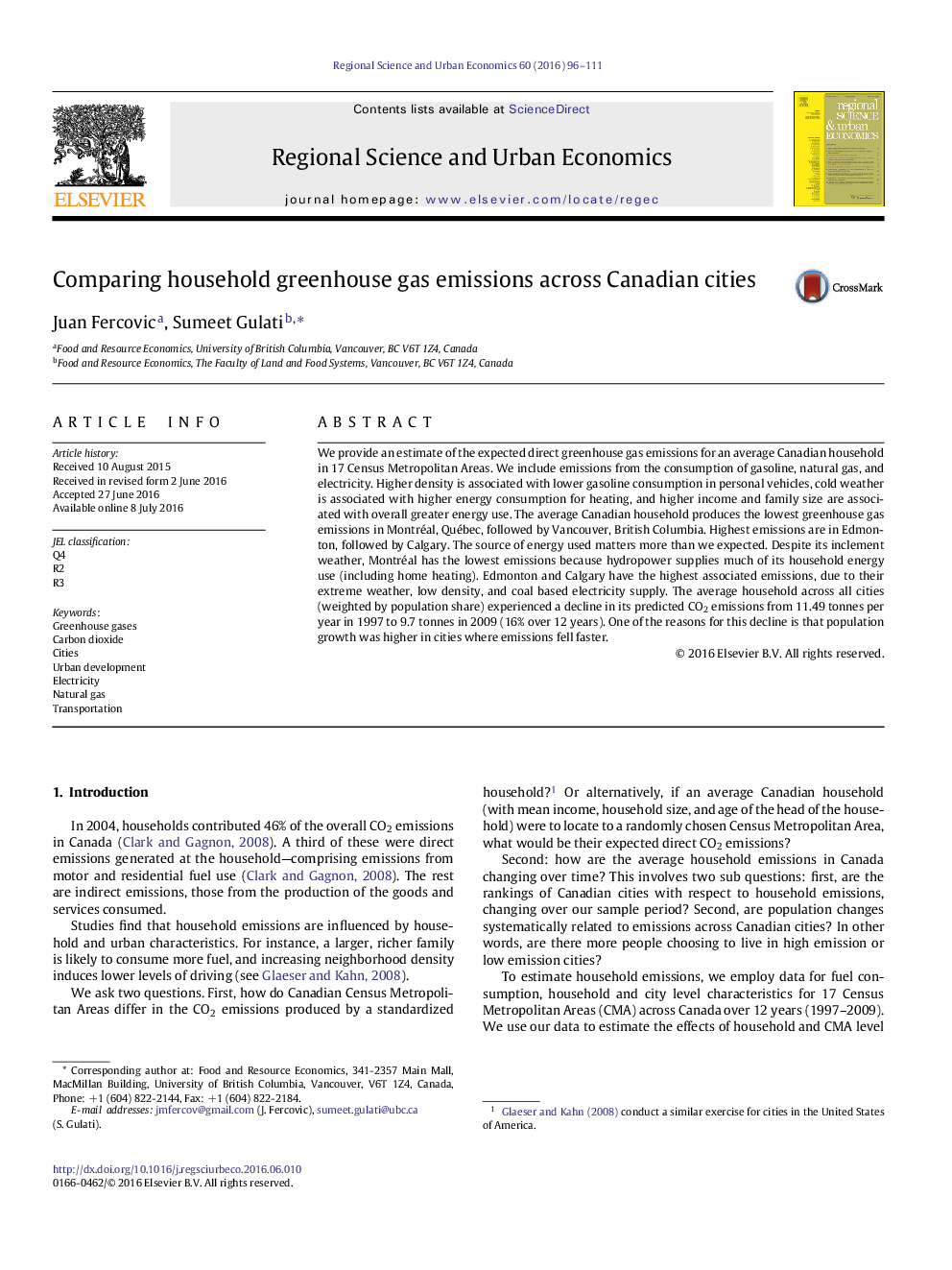| کد مقاله | کد نشریه | سال انتشار | مقاله انگلیسی | نسخه تمام متن |
|---|---|---|---|---|
| 983632 | 1480534 | 2016 | 16 صفحه PDF | دانلود رایگان |
• Estimate expected direct carbon dioxide emissions for an average Canadian Household in 17 Census Metropolitan Areas.
• Lowest CO2 emissions in Montreal, Quebec, then Vancouver, British Columbia.
• Highest emissions in Edmonton, then Calgary.
• The average household emissions fell from 11.49 tonnes per annum in 1997 to 9.7 tonnes in 2009.
We provide an estimate of the expected direct greenhouse gas emissions for an average Canadian household in 17 Census Metropolitan Areas. We include emissions from the consumption of gasoline, natural gas, and electricity. Higher density is associated with lower gasoline consumption in personal vehicles, cold weather is associated with higher energy consumption for heating, and higher income and family size are associated with overall greater energy use. The average Canadian household produces the lowest greenhouse gas emissions in Montréal, Québec, followed by Vancouver, British Columbia. Highest emissions are in Edmonton, followed by Calgary. The source of energy used matters more than we expected. Despite its inclement weather, Montréal has the lowest emissions because hydropower supplies much of its household energy use (including home heating). Edmonton and Calgary have the highest associated emissions, due to their extreme weather, low density, and coal based electricity supply. The average household across all cities (weighted by population share) experienced a decline in its predicted CO2 emissions from 11.49 tonnes per year in 1997 to 9.7 tonnes in 2009 (16% over 12 years). One of the reasons for this decline is that population growth was higher in cities where emissions fell faster.
Journal: Regional Science and Urban Economics - Volume 60, September 2016, Pages 96–111
